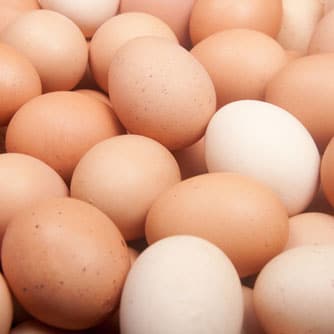New research suggests that current dietary guidelines for the essential nutrient choline need an overhaul. Kerry-Ann da Costa Ph.D., a researcher at the Department of Nutrition at the University of North Carolina, and colleagues analyzed healthy men and women who were fed a baseline diet containing 550 mg choline/day (the adequate intake level set by the Institute of Medicine) for 10 days. The participants were then put on a low choline diet (50 mg choline/day) for up to 42-days, and monitored for increased liver fat and changes in liver and muscle function. If they developed clinical symptoms of choline deficiency during this period, choline was returned to their diet until the symptoms resolved. The participants were then categorized by symptoms – liver, muscle or none. DNA isolated from the participants’ blood was analyzed for 200 single nucleotide polymorphisms (SNPs) in 10 choline-related genes in order to determine which SNPs were associated with liver or muscle damage. Results showed that gender, life stage and genetic makeup all influence choline requirement, thus meaning that the current guidelines may not meet the nutritional needs of some people. “Today’s dietary guidelines are approximations at best, and one size does not fit all,” said Gerald Weissmann, M.D., Editor-in-Chief of The FASEB Journal. “As we move toward an age of personalized medicine, studies like this should make it possible for health care professionals to judge how much of each nutrient your particular body needs.”
Choline Dietary Guidelines Insufficient
da Costa KA, Corbin KD, Niculescu MD, Galanko JA, Zeisel SH. Identification of new genetic polymorphisms that alter the dietary requirement for choline and vary in their distribution across ethnic and racial groups. FASEB J. 2014, Mar 26. [Epub ahead of print].
RELATED ARTICLES




